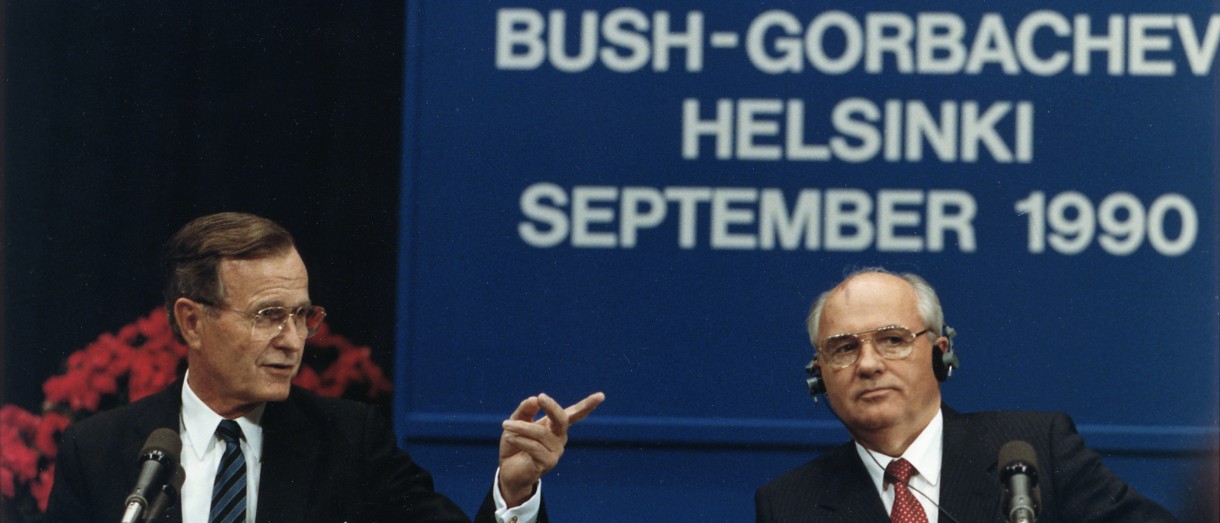
Bush 41: The Pivotal Presidency
-
Campus Programs
- Institute for Honor Symposium: Business as a Force for Good
- Tom Wolfe Weekend Seminar: Vigil
- Summer College I: The Founding of an Independent Nation at 250
- Summer College III: Family Adventure in Theater: Puppetry & Performance
- Summer College II: From Stone to Smartphone: “Books” and the Materiality of Reading
- Law and Literature Weekend: The Round House by Louise Erdrich
- Accommodations and Dining
- Additional Program Information
- Past Programs
- Travel Programs
- Online Programs
Bush 41: The Pivotal Presidency
July 21 - 24, 2019
George H. W. Bush had an unusual political career. He won two terms to the House of Representatives in a safe seat near Houston and then lost two statewide races for the Senate. That kind of electoral record should have ended his career in politics, but instead he went on to serve as ambassador to the United Nations, head of the Republican National Committee, U.S. envoy to China and then director of the CIA. Leading the Republican Party at the height of Watergate and the CIA during a period of scandals should have ended his political career for a second time. It did not.
Bush was a serious challenger to Reagan for the presidency in 1980. After he lost the nomination, he accepted the second spot on the ticket and loyally served as Reagan’s vice president. When he ran again in 1988, Republicans worried that he was not really a Reagan conservative. It did not help that Newsweek called him a wimp. After winning hard-fought primaries and a controversial general election, Bush confronted large opposition majorities in Congress and deficits that deadlocked domestic legislation.
His presidency also faced a dramatically changing world. Chinese students demanded political freedom in Tiananmen Square, Poland held free and fair elections, Hungary opened its international borders, Czechoslovakia made a poet and former political prisoner their new president, the Berlin Wall came down, and the Soviet Union collapsed. In 1989, Bush approved the largest American military operation since Vietnam to overthrow the government of Manuel Noriega. A year later he sent a vastly larger military force into the Persian Gulf to oppose Iraq’s invasion of Kuwait.
George H. W. Bush titled is memoir A World Transformed. The world was indeed transformed during his four years. But who was he? Was he the lucky inheritor of the Reagan Revolution? The resume-rich foreign policy expert who talked freely to world leaders but never fully connected to the American people? The awkward patrician with one foot in old- line Connecticut and the other in freewheeling Texas?
We’ll take up these and other questions as we focus on Bush’s surprisingly pivotal presidency. Faculty include W&L politics professor Bob Strong, Spencer Bakich from VMI, and others.
-
Campus Programs
- Institute for Honor Symposium: Business as a Force for Good
- Tom Wolfe Weekend Seminar: Vigil
- Summer College I: The Founding of an Independent Nation at 250
- Summer College III: Family Adventure in Theater: Puppetry & Performance
- Summer College II: From Stone to Smartphone: “Books” and the Materiality of Reading
- Law and Literature Weekend: The Round House by Louise Erdrich
- Accommodations and Dining
- Additional Program Information
- Past Programs
- Travel Programs
- W&L at Home